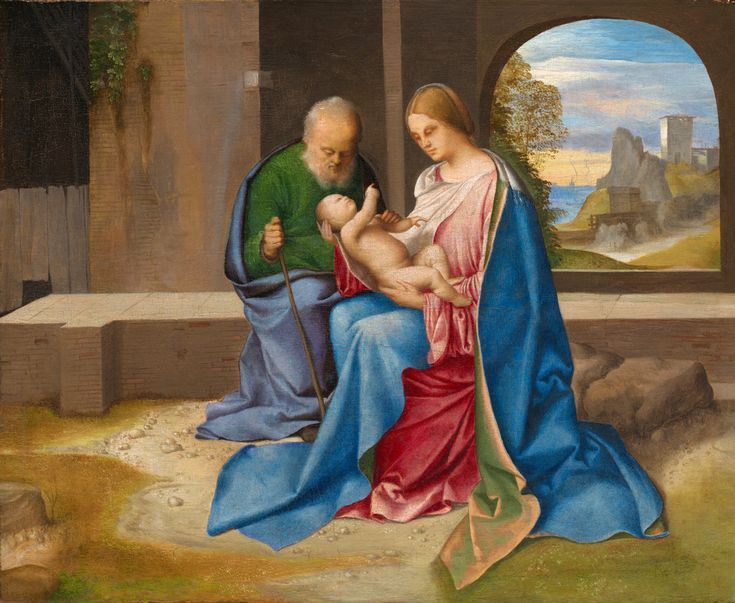The Word Made Flesh: The Gift That Transforms Us
A Homily for Christmas Day

In the Gospel of Christmas Night we heard of the Lord’s birth from the Gospel of St Luke, of angels singing in the skies, and of shepherds racing to find the Saviour, Christ the Lord, wrapped in swaddling clothes and lying in a manger. And we raced too, in our hearts to be with Mary pondering her child, to be with the Shepherds adoring the babe of Bethlehem, God in our midst.
But on Christmas Day we hear those profound words of St John from the prologue to his Gospel. It is almost as if he doesn’t want to repeat that story of Mary, the Angels and the Shepherds but rather pull back the curtain, for us to see not just this moment in history, not just the pretty scene of the manger, but rather for us to understand what it means for all eternity. How the world changed that night and has never been the same since.
He wants us to grasp that God has uttered his Word, the fullest expression of himself that God, he has spoken to us by his Son. God speaks in the silent cry of a newborn baby. St John wants us to be silent before this profound mystery, be still before this wonder and take in its meaning. “And the Word became flesh and dwelt among us, and we have seen his glory, glory as of the Only Begotten from the Father, full of grace and truth.”
He wants us to see not just the child in the manger, and the loving worship of those who come near, but understand why the eternal God took on our flesh and came into our midst.
- Christ came in the flesh to show us the face of God in the most intimate way possible. God could have chosen many ways to reveal Himself to the world, but He chose to enter it as a child—vulnerable, small, and dependent – whom we can look upon and love. He slipped into our world humbly, gently, to approachable and knowable.
- Christ came in the flesh to show us the heart of the Father. “God so loved the world that he sent his only Son.” He came because he loves us. That simple truth. It is this love that has come to us, not in the abstract, but in a way we can touch and feel, a love we can experience in the flesh.
- Christ came in the flesh so that we might have the power to become Children of God. He came to call us friends, so that we might live in friendship with him. He came to Bethlehem, the House of Bread, so that we feed on him, to grow with him in love and compassion, gentleness and kindness.
It is almost as if the crib has become a mirror, because in the frail vulnerability of that child we see our fragile selves but something more - a humanity made glorious by God sharing our flesh. This Christmas mystery made Pope Leo the Great cry "O Christian, be aware of your dignity, it is God’s own nature that you share." A race made noble because we are called to be friends of God.
In the child we see how we are loved but the child also calls us to respond to what we see. In the flesh Jesus teaches us how to love with a human heart. To reach out to the needy, the poor, the oppressed. To rejoice with those who are happy, to grieve with those who are sad. In the Incarnation God shows a way that is literally down-to-earth. If we are to grow in love with this child, then we too must engage with the world in the business of practical loving.
We have received grace upon grace, in other words with that power, with that strength to love as he loved. He gave us power to live as children of God.
Today we exchange gifts in remembrance of this greatest gift, God made flesh in our midst. Today we exchange gifts because love is to be shared. Most of all to give the gift of our own selves to others. To live graciously, which means being courteous, generous and kind.
May this Christmas be for each of us an opportunity to encounter the Child born for us, to receive His love, and to let that love transform our lives and the lives of those around us.
Have a wonderful Christmas and may the peace of Christ fill your hearts this holy season and always.
The Belmont community wishes you all a very happy and holy Christmas and a grace-filled New Year.









